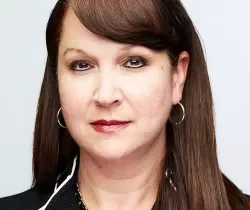Rachel Wimberly

Rachel Wimberly is Executive Vice President of Business Development at Tarsus Group, US. Follow her on Twitter @TSNN_Rachel.

For most shows, 2020 is done. You either were lucky enough to hold a show pre-COVID or your show probably has been canceled. At this point, few shows still are on the 2020 calendar through year end.
Now - everyone is facing 2021.
Those shows that were held in the first quarter of 2020 are grappling with what the impact will be in the first half of 2021 on live events. Not to mention all the shows that didn't run at all this year and holding their breaths on how 2021 will unfold.
The bottom line with any show that hopes to run live in 2021 is organizers need to stop attempting to plan the same event they always have had.
It’s time to be thinking much more strategically on what kind of live (and hybrid) event experience truly is serving your audience.
What Demographic Will Attend? Who Will Stay Home?
In 2021, there likely will be fewer attendees. So who will be there? Someone mentioned to me the other day a point I hadn’t considered as of yet.
Senior leadership tends to be older. People who are older may not be as willing to travel to your event initially, so the attendees may skew younger. They may be tasked with ‘decisions’ they wouldn’t usually make onsite – how can you help them succeed at your event?
Make sure content is geared toward young professionals. Networking should be very experiential and unique. Recognition, training, and leadership programs and opportunities will be key for this demographic.
How Can You Engage Senior Leadership?
This is where a well-designed hybrid event is crucial. Make sure to offer high-level opportunities for this audience. Keynote speakers with sponsored small group Q&A’s for C-level execs after the general keynote. Peer-to-peer roundtable breakouts that allow senior leadership to engage on topics that are important to them.
If there are education sessions, make sure they are focused on topics the C-levels care about and give them the opportunity to network or meet one-to-one with each other and especially exhibitors and sponsors.
Re-set Show Expectations/KPIs
Until recently, most shows were measured mainly on the number of attendees and exhibitors. With fewer of both, what are the new KPIs?
Everyone’s focus will switch to quality vs quantity, at least for the next year or so. Total transparency on WHO exactly will be attending/or did attend the show is necessary for exhibitors/sponsors to continue to support it.
I truly believe if show organizers treat all exhibitors/sponsors as partners and take the time to listen to what their current needs and goals are and then make a concerted effort to deliver on that as much as possible, the huge crowds of people will not be missed.
It will matter more if a handful of key buyers are on hand than thousands walking by a booth.
Experential, Experential, Experential
It has been a really tough time for everyone, personally and professionally, and if people make that decision to come to your show in the next year – it is up to you ensure they are engaged in a very real way when they are there.
Give them some true memories. Create an Instgrammable area of your show with a unique image they can share. I saw one at the Game Developers Conference last year where they had a map of the world and everyone took bright-colored pins and placed them where they traveled in from. EVERYONE took their picture next to it – including me.
Help your exhibitors create more engaging in-booth experiences. VR, touch screens, food and beauty samples, etc. will likely be out for a while – so what can they do to attract attention? It’s not just at the event, what about before? Could they sponsor a fun social media contest leading up to the event and it’s continued onsite in their booth? Scavenger hunts are always a winner – people like competitions. Consider renting a pod for one-to-one meetings in your booth, etc.
If you are just planning the same show as you’ve always had, with maybe fewer people, you need to be taking a more strategic approach to ensure you truly are serving the needs of your attendees and exhibitors who have come to your event.

Add new comment